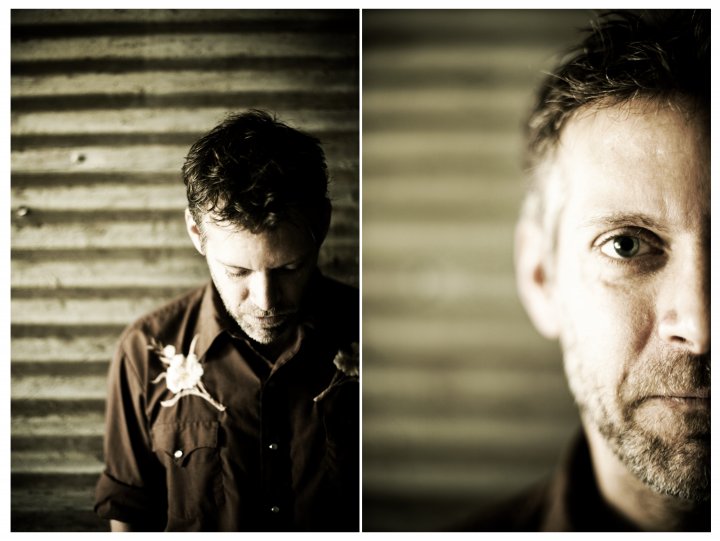Rod Picott: Songs for the new DepressionThese Are Americans Singing
On Welding Burns, Rod Picott sounds like the voice the OWS movement needs
By David McGee
WELDING BURNS
Rod Picott
Welding Rod RecordsA once-thriving Midwestern American town left in ruins by its factory jobs being outsourced to Mexico and China. A blue collar worker numbing himself with alcohol as he surveys the tedious routine his life has become, a legacy of “broken homes, wrecked cars, scars and welding burns” handed down as bitter legacy from his hard drinking father. Unemployed men, fueled by drink, drugs and desperation, systematically plotting holdups at gunpoint that will net them the cash they can’t find via gainful employment. Bittersweet memories of damaged women whose hold on their men seems to bind them with mighty cables, even as those men know better. Last chances, last gasps, broken hearts, an unrecognizable homeland bereft of opportunity populated by the hollow shells its citizenry has become.
‘I swore I wasn’t gonna stay here/I used to dream a lot/Now I can’t remember/What it was/That I was dreaming of’: Rod Picott, ‘Welding Burns,’ live at Threadgill’s South during SXSWWelding Burns is the latest album by one of America’s finest songwriters, Rod Picott, no superstar he but a truth-teller of the first order, a master craftsman and a poet in one body. (He’s also the son of a welder, and has worked as a sheetrocker; he knows whereof he speaks when he sings of working people.) I should apologize for being so late in bringing this album to our readers’ attention, seeing as how it came out this past June, but the time, right now, right here, could not be better for the world to find out about what Picott is up to on this, his sixth solo CD (he has also recorded a duet album with his occasional musical partner Amanda Shires [Sew Your Heart With Wires], who is featured to great effect on Welding Burns—his are the songs the Occupy Wall Street protesters have been waiting for, songs that graphically describe the quotidian issues the mass of middle and lower class Americans are struggling with every single day of the interminable recession. With organ, fiddle, mandolin, pedal steel, bass, drums and various percussion, and the great Will Kimbrough on slide and electric guitars, Picott (on acoustic guitar and piano), whose raspy, weary voice, something of a cross of young John Prine and young Tom Petty (and whose populist sensibility is on a par with theirs), bears the weight of all the burdens he details in his songs, which are as impressively restrained in execution as they are atmospherically subdued, in this way becoming voices of their own, longing, searching, grasping at hope so tantalizingly close but always out of reach—Amanda Shires’s fiddle crying deep in the background of “Your Father’s Tattoo,” a piercing account of a father about whom much is known but the pieces add up to someone ultimately unknowable; Alex McCollough’s pedal steel weeping quietly throughout “Black T-Shirt,” a chilling account of the runup to the moment when a man beset by multiple misfortunes of a personal nature sets his sights on “a dealer in a trailer off the Interstate,” carrying with him “a big idea and a .38”; Picott’s delicately fingerpicked acoustic guitar in “Little Scar,” setting an easygoing pace to complement the warmth in his loving, whispered love song to the woman he left behind but whose memory haunts him still; the angry harmonica and slide guitar slashing and shimmering over a hard, pulsating rhythm, mirroring the impending mayhem in “410,” in which Picott’s unemployed protagonist is barreling down the highway in a Firebird, sawed-off shotgun on the seat next to him—“’bout as loud as a preacher/shouts enough to get you into trouble/not enough to get you out”—en route and up to no good. All this, until, finally, in the Petty-esque rocker “When My Running Is Through,” the band cuts loose with a stomping charge as Picott sings in as close to a fury as he gets about kissing off his worldly goods as he hurtles toward his inevitable demise, telling his interlocutor, “I’ll be leaving all I have here with you/You can keep it I won’t need it/Out in the blue/When my running is through.”
‘No one gets a bonus/For bloody knuckles and scars/No one remembers your name/Just for working hard’: Rod Picott and Amanda Shires perform ‘Rust Belt Fields,’ from Welding Burns, at the Gaither House Concert in Austin, March 20, 2011.This is America singing, OWS protesters, not, alas, the nondescript Sean Ono Lennon or the entirely predictable and ineffectual if well intentioned Tom Morello. Welding Burns doesn’t proselytize but leads by example and by examination of the lives being systematically wrecked while its protagonists’ cries for help go unheeded and those responsible for this disaster go unpunished. “At the Protests, the Message Lacks a Melody” declares the New York Times. Well, here it is--no anthems on the order of “We Shall Overcome,” which is curiously absent from this movement, but the stories of what’s really going on out there, one after another, until the explosive, deadly climax--the one moment on the album you hope does not become a commonplace tale. Nevertheless, Rod Picott has delivered an impassioned primer on the state of the union. Is anybody listening?
‘I drove by the Mexican place/Where we used to go on Saturdays/But it wasn’t there/Just weeds and stone/Just like us/Gone is gone’: the music video for ‘Little Scar,’ from Rod Picott’s Welding Burns album.
Founder/Publisher/Editor: David McGee
Contributing Editors: Billy Altman, Laura Fissinger, Christopher Hill, Derk Richardson
Logo Design: John Mendelsohn (www.johnmendelsohn.com)
Website Design: Kieran McGee (www.kieranmcgee.com)
Staff Photographers: Audrey Harrod (Louisville, KY; www.flickr.com/audreyharrod), Alicia Zappier (New York)
E-mail: thebluegrassspecial@gmail.com
Mailing Address: David McGee, 201 W. 85 St.—5B, New York, NY 10024



